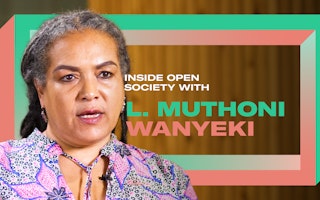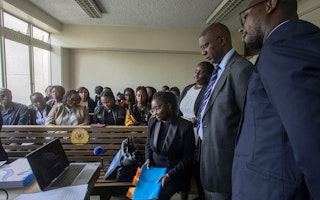Obama’s Chance to Bolster Civil Society in Kenya
By Sarah Pray
When President Obama goes to Kenya this week, he will meet with a selection of civil society organizations, including two groups that are currently under fire from the Kenyan government.
Those organizations, Muslims for Human Rights (MUHURI) and Haki Africa, have been fighting for several months for their right to operate freely after the Kenyan government froze their bank accounts and put them on a list of groups suspected of having ties to al-Shabaab, the Somalia-based terrorist group. Despite continued cooperation with the government, the support of the international community, and a court ruling that they should not be on this list, the organizations remain in limbo.
There are two major principles at stake when President Obama meets with Haki Africa and MUHURI. The first is his stated commitment to “stand with civil society.” Time and again, Obama has stated the importance of a free civil society and has even declared civil society “the conscience of our countries.”
We hope the president stands by this ideal even if it risks creating a diplomatic dilemma and that, while pressing the government to allow these two groups to operate freely, he also emphasizes that all civil society organizations should be free from undue restrictions. There have been murmurs about new potential regulations for civil society in Kenya, and while it is within reason to demand certain information from NGOs to ensure transparency and accountability, politically motivated attacks on dissenting voices are never acceptable.
The second principle is even more concrete. At the Countering Violent Extremism summit earlier this year, the president talked about the important role civil society can play in ensuring that communities, especially those that are targets for terrorist recruiters, are part of the dialogue about how best to combat extremism.
In Kenya, MUHURI and Haki Africa are working at the heart of this struggle, playing a critical role as a bridge builder between the Kenyan government and the communities of coastal Kenya. They also play an incredibly vital role in making sure the counterterrorism tactics of the Kenyan government do not violate the rights of ordinary Kenyans by documenting and reporting suspected abuses by state security forces. It is exactly this kind of work that we need if we are going to win the war against al-Shabaab.
If President Obama is serious about his commitment to stand by civil society and to include their voices in the fight against violent extremism, then the Kenya trip presents a perfect opportunity to make this rhetoric a reality. He should urge the Kenyan government to unfreeze these two organizations’ bank accounts, stop all intimidation and harassment of the groups, and allow them, and all their civil society colleagues, to operate freely and fully without fear.
If he doesn’t stand firm on these principles, he sends a clear signal to Kenyans, Ethiopians, and people around the world that other interests trump democracy and human rights.
Muslims for Human Rights and Haki Africa are grantees of the Open Society Foundations.

Until November 2021, Sarah Pray was the director of advocacy for the Open Society Economic Justice Program.


